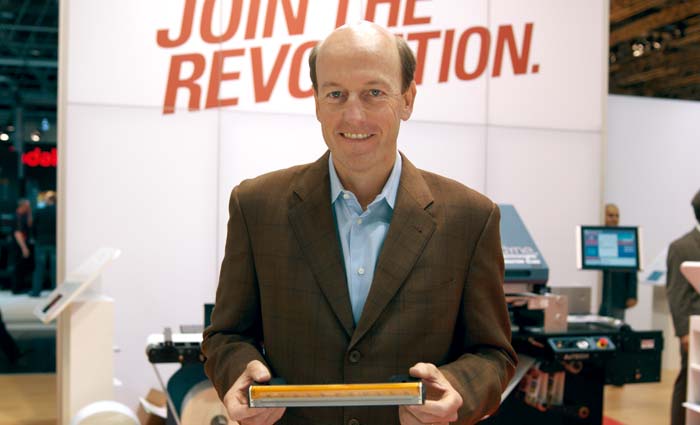
The high-speed, high-quality form of inkjet is based on technology developed by Silverbrook Research, which has been mired in legal turmoil with The George Kaiser Family Foundation, which is believed to have invested $610 million in Silverbrook over the past decade.
Until now, Memjet had licensed the technology from Silverbrook, but it has now taken direct ownership and control of the assets, including some 4,000 patents as well as facilities in North Ryde and Balmain, Sydney.
These operations will now be renamed Memjet Australia, chief executive Len Lauer told ProPrint.
The majority of employees have been offered positions under the new regime. The deadline for acceptance is this week, and Lauer said “a very large majority” have already accepted roles.
He added that Memjet Australia would employ close to 300 people, and that it would remain in Sydney.
“I am confident that for the foreseeable future, we will have large presence in North Ryde, because, one, the skill sets are very unique and hard to replicate anywhere in the world, and two, the assets and facilities we have there to assist engineers for research and development would be very expensive to move.
“We are very committed to our operation in the Sydney area,” said Lauer.
He added that the company was still undecided on whether to keep its “small facility in Balmain” or consolidate this into North Ryde.
Lauer was on a flying visit to Sydney last week, after attending Drupa, where he told ProPrint Memjet had “come of age”.
Memjet used the German trade show to announce three major OEM deals, with wide-format devices from Canon-Océ and Fuji Xerox and an enterprise machine from Toshiba.
“It is a major milestone for Memjet to have three very large Japanese incumbent providers integrating our technology,” he said.
Lauer also revealed to ProPrint that future applications for the high-speed print heads could include production digital.
Memjet heads have already been incorporated into the Elan digital press from US manufacturer Delphax, which is aimed at the transpromo market, as well as the CDT-1600 inkjet label press from Colordyne.
“That press could easily be adapted for the market where the iGens or Indigo are working. We think we are a very good alternative to that; we offer very good quality, and are less expensive, both in terms of capital cost and cost to operate,” said Lauer.
Comment below to have your say on this story.
If you have a news story or tip-off, get in touch at editorial@sprinter.com.au.
Sign up to the Sprinter newsletter
